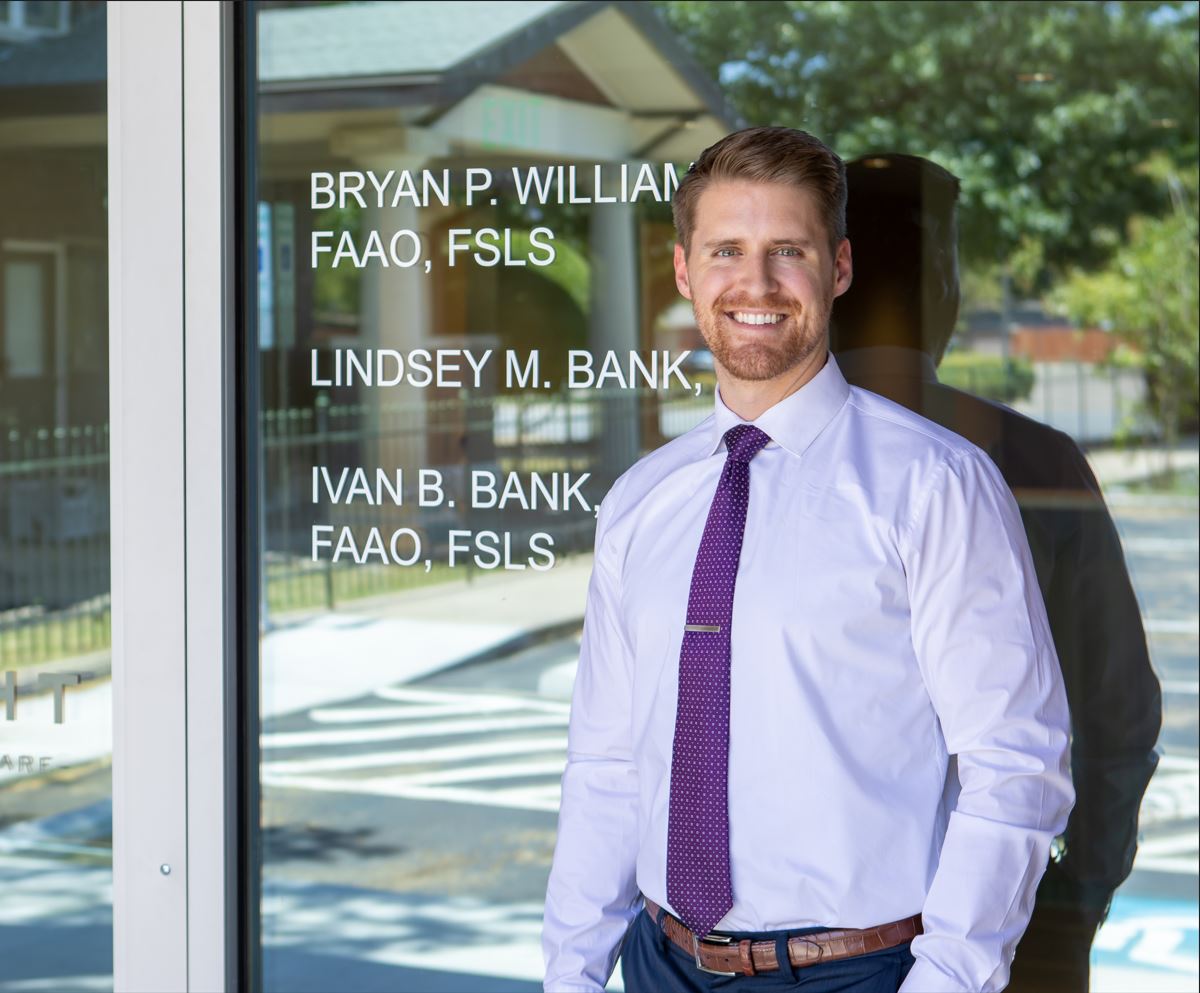Bryan Williams, OD, FAAO, FSLS, practices optometry at Insight Complete Eye Care in Fort Worth, TX. After earning his Doctor of Optometry degree from the University of Houston College of Optometry, Williams completed a cornea and contact lens residency at the UAB School of Optometry, which deepened his clinical expertise, providing the knowledge to introduce and grow a contact lens specialty at his current practice.
In this Q&A, he shares insights into his residency journey, the impact it had on his professional goals, and advice for optometry students considering a similar path.
What inspired you to pursue a residency?
When I was still in optometry school, a lot of the doctors I looked up to as role models and mentors had done residencies. I was also very interested in gaining more expertise in cornea and contact lens, so it made it an easy choice for me to decide to pursue a residency program focusing on that.
Why did you choose a residency in cornea and contact lenses?
I was hooked once I saw the instant vision improvement that a scleral lens gave to a keratoconus patient. Very few areas in health care can have as much of an immediate impact on a patient as we can, in my opinion.
Describe your UAB School of Optometry experience. Provide a glimpse of your average day.
First off, I loved it! My five-day week was broken into half days that I was allowed to customize quite a bit. Depending on the semester, it differed a little.
In the Fall, two of my half days were spent teaching students the fundamentals of contact lenses in the lab alongside other faculty. Another two half days were dedicated to external rotations, where I shadowed doctors in various subspecialties at their clinics. Another half day was our conference period, where all the residents came together for lectures on a wide range of topics. Sometimes, we presented our own interesting and successful cases, which was a great learning opportunity.
Outside of those structured half days, I provided direct care to my own patients. In the Spring, the biggest change was that I started precepting students in the contact lens clinic during a couple of my half-day blocks, which added a new layer of teaching responsibility.
Outside of my Monday-Friday routine there were other things that kept me busy such as working on case posters or presentations for conferences and sharing on-call responsibilities for the clinic. Overall, I'd say my weeks were a great mix of direct patient care, shadowing, and teaching. It allowed me to build up my skills in a wide variety of areas.
When you began the residency, what were your future plans? How did the residency help clarify your goals?
My goal was to return to Texas, join a private practice and build up their base of specialty contact lens patients. I also wanted to continue to stay involved in the specialty contact lens community through activities like lecturing and participating in committees for professional organizations like the Scleral Lens Society.
Completing my residency at UAB really opened a lot of doors for me to continue to achieve my career goals. I do not think I would be at the practice I'm currently with or be lecturing and consulting for companies and organizations without the experience I gained while in Birmingham.
What were some lessons and/or experiences that stand out?
There are a handful of success story cases that I still think about quite often. They remind me of how much of a positive impact specialty contact lenses can have on patients. The contact lens conferences were big highlights of my residency as well. Not only were they a ton of fun, but they allowed me to make a ton of connections and friends that I am still close with today.
In what ways has your cornea and contact lens residency shaped your approach to patient care in your current practice?
My practice has a large emphasis on specialty contact lens care, and they are the majority of the patients I see. I draw back on the foundational knowledge I learned at UAB daily. Without it I would not have been able to build the practice into what it is today.
What advice would you give to optometry students considering a residency?
I am a strong advocate for pursuing a residency. I understand it may not be the right choice for everyone but if you are looking to practice optometry to the fullest extent of your scope, and to gain the flexibility to pursue many different career paths outside of just direct patient care, a residency would be an awesome option.
